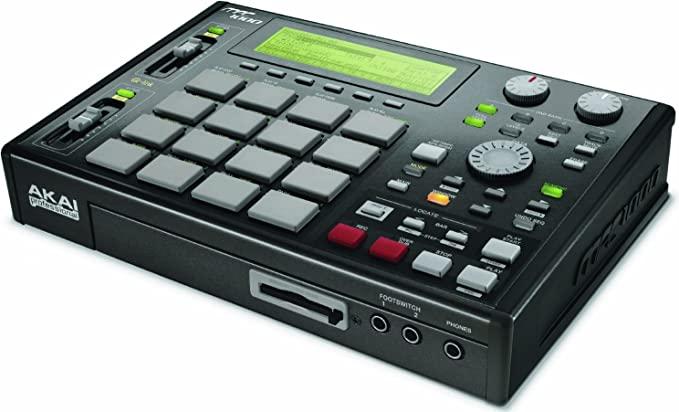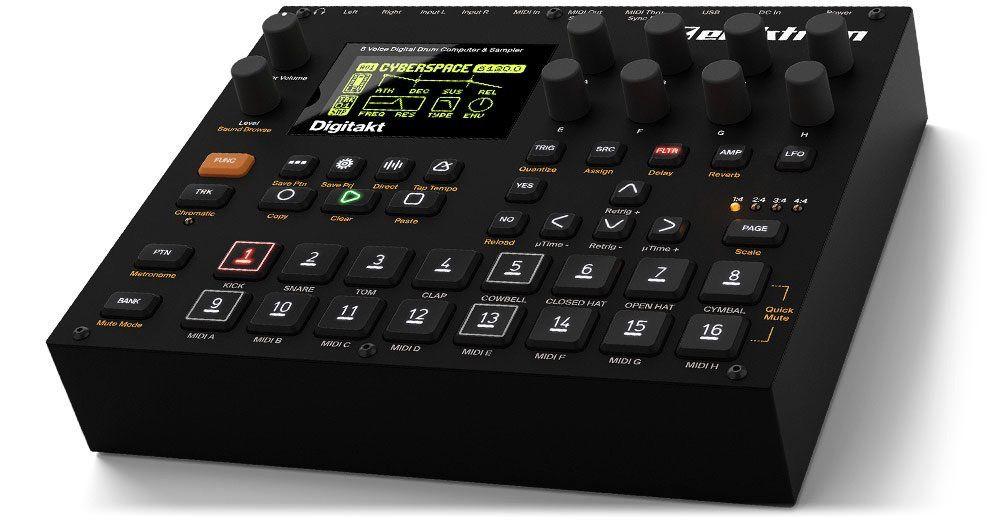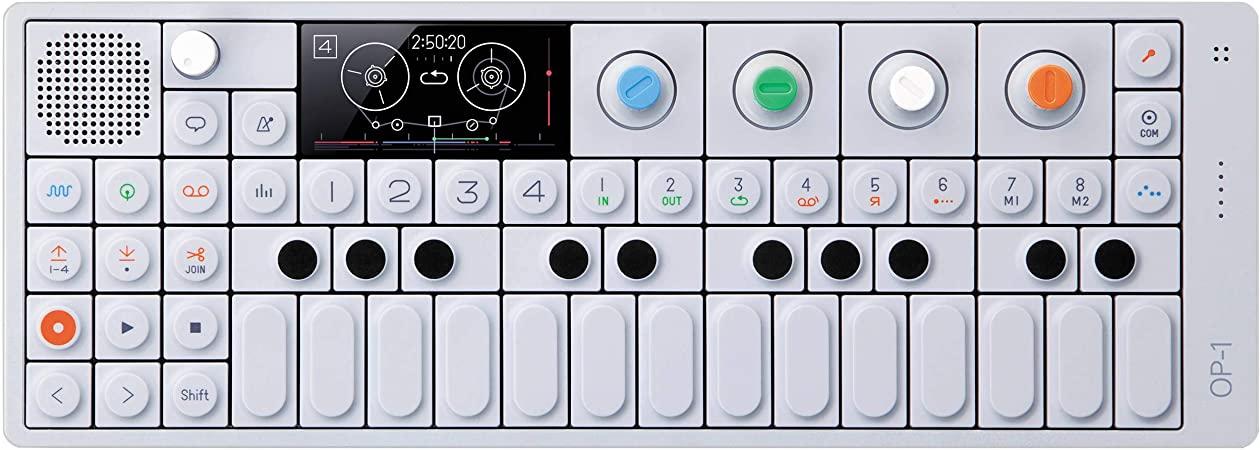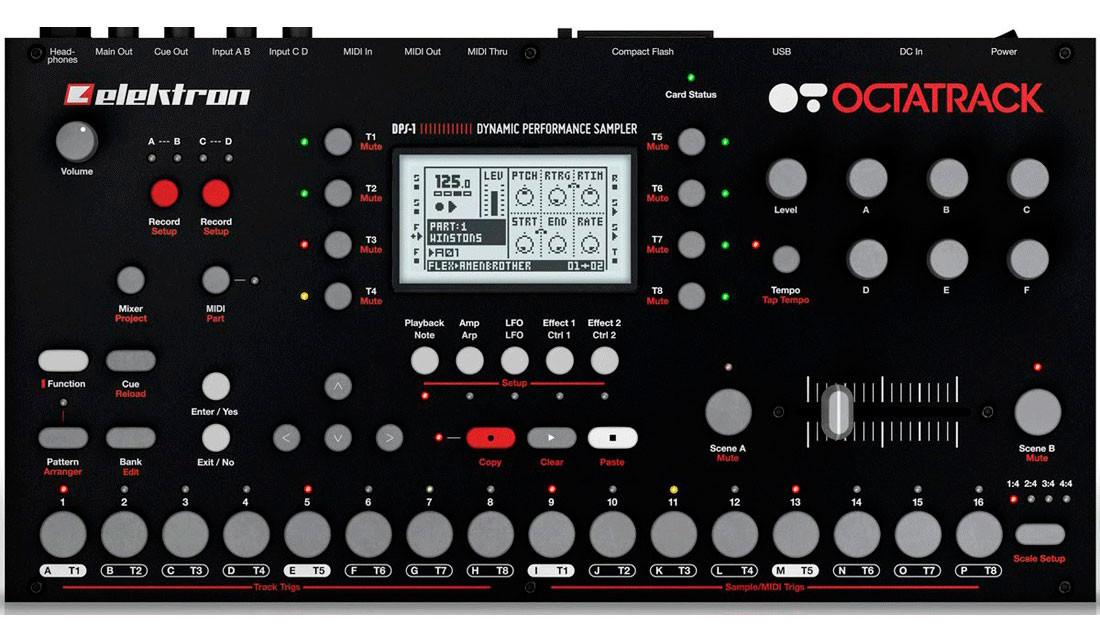Getting Started with Samples Packs
Ever wondered what the secret is to creating an inspiring piece of electronic music? Different musicians who admire different artistic inspirations will inevitably give you different answers here, but if you ask me, it all starts with a good set of samples.
Having an arsenal of unique sounds at your fingertips, from my experience, can mean the difference between getting the sonic juices flowing or sitting in front of a blank canvas trying to divine a creative direction. Part of this has to do with the tools I use to make music. Ableton Live is of course built around the paradigm of samples and loops, but some of my favorite hardware, such as the Elektron Digitakt, Octatrack, AKAI MPC1000, and Make Noise Phonogene, also rely on being fed a steady diet of sounds.

Working with drum samples and percussive sounds are a no-brainer when it comes to producing an electronic track but a wealth of possibilities exist in manipulating and warping sampled bits of audio in your DAW or sampler.
Whether it’s grabbing phrases from your favorite tunes, atmospheric ambience from a field recording, loading up single-cycle waveforms, chopping vocals, spoken-word, or recycling moments from a dusty old jam session, these bits and pieces will not only lend themselves to artistic creativity but their collective tone, timbre, and mood will act as an invisible hand guiding your production. In the end you may even start asking yourself, “did I lay this track down or did the sounds simply tell me where they wanted to go?”.
Of course getting to this point, building up a solid sample library, is the easy part. A sample-based workflow can be extremely rewarding but getting setup and organized to the point where you can truly take advantage of this workflow is time consuming.
From physically sampling tracks to tracking down sample packs, building out kits, figuring out how to sort all these bits of audio, auditioning material, pairing it all down, backing everything up, and loading those samples across different devices are just a few of the mundane tasks to slog through before you’ll unlock the true potential of your sample collection.
There will be a few posts in the future about how to organize and backup a sample collection, but what if we’re starting at square one? You just bought a sampler, the built in sounds are fine but you want to add your own. So you google “free sample packs” but the amount of results you get back is overwhelming and most of them aren’t really free (dollars or royalties-wise). Where do you begin?
As with many questions, you can be certain you’re not the first person on the internet to ask this. One of the best places out there for specific technical questions, especially for music production, are internet forums and message boards. Instead of relying of Google, seek out the most popular forums for the type of hardware you work with or the type of music you like making.

I’m a big fan of Elektron gear and Elektronauts is the defacto place for all things Digitakt and Octatrack (as well as the rest of the Elektron product lineup). Elektron of course sells a variety of excellent sample libraries and sound packs, but searching around Elektronauts also yields a plethora of free or affordable sample packs. Scouring Elektronauts for sounds is a great bet for any samplist given Elektron’s machines don’t use a proprietary format for audio, meaning people are linking to archives of .wav files that can be used (or converted) across many other samplers or computers.
Same goes for the Teenage Engineering OP-1, everyone’s favorite portable polymath. The OP-1 takes one-shot samples as well as longer samples that can be spliced into drum kits or used as backing loops. A wealth of information about the synth and other TE products can be found at OP Forums, and a search for “free samples” there also provides us with a mountain of cheap and unique sounds. The OP-1 uses .aif files for samples but many tools exist to convert to or from this format. Also of note for OP-1 users, op1.fun is an incredible place for patches, samples, and drum kits with an equally inspiring web design.

Beyond communities for specific hardware, there are plenty of general music production forums that have been sharing and swapping sample packs for decades. Gearslutz is one of the largest and likely most controversial (though they announced they’ll be changing their name soon). A simple search for the term “sample” will be almost as unwieldy as Google, but a convenient thread exists in the Electronic Music Production subforum for swapping sample collections.
Dogs On Acid, one of the largest Drum & Bass communities on the web, has an excellent extensive sample collection to browse as well. On the more boutique side of things we also have llllllll.co (aka Lines) and their well organized thread dedicated to sample sharing. You’ll find an assortment of clips from various instruments (both well known and foreign) as well as speciality samples for all manner of Eurorack modules.
Finally, KVR Audio has a whole subforum specifically geared towards exchanging samples. Though KVR has a lot of threads to page through, they might be the place to go if you need samples compiled in a specific format for, say, for use with software like Reason or Native Instrument’s Maschine. And I’m also going to give Vintage Music Samples a shout out here (technically a community but not a forum).
By now, you likely have way more audio than you know what to do with, but just in case, there are a few other resources I feel obligated to shout out. First and foremost, Archive.org hosts a bevy of audio content. Their Community Audio section is the go-to place for samples but you can get lost in their archives for years. The amount of esoterica you’ll discover by simply combing through their catalogues of Grateful Dead bootlegs, Old Time Radio programs, and ancient 78 Records could generate material that would last you the rest of your recording career. This archive is also not to be missed.
Their browsing interface is clunky, but the discovery is part of the fun (and hey you get to live life like the crate diggers of yesteryear who made this hobby accessible to the rest of us). Seriously though, The Internet Archive does mighty work and if you can find it in your heart to kick them a donation you definitely should.

Sample production companies are another obvious source for unique and well-produced sound packs, but what might not be obvious is many producers have freebies available for you to, ahem, sample, before you commit to buying their product. Sampler king Goldbaby is one such company. Samples From Mars, a favorite production house of mine, is another.
While they’re more of an auction site for music gear than anything else, you can find a clutch of sample packs on Reverb.com for $0. Even print magazines (remember those?) are in on the game. MusicRadar hosts over 70,000 pro quality samples on their website, a collection accumulated from the CD-ROMs that come with each issue of Future Music and Computer Music magazine.
Want to flip samples of every drum machine, synth, ROMpler, and workstation under the sun but have to work within the pesky constraints of having a life and limited budget? Fear not, KB6.de has you covered with what is very likely the largest sample library on the internet. Their free archive contains the complete contents of 309 different instruments, mostly drum machines but also synthesized drum sounds from hardware like the Moog Modular 55 and Suzuki Omnichord OM-84. KB6.de is another site that, if you have some spare change to give, I highly suggest your donate to keep the project alive (you can learn more on their FAQ page).

One final place to consider searching is amongst your favorite recording artists. Almost every Hip Hop producer and Beatmaker has a signature kit with their name attached to it (official or unofficial) floating around the web. A variety of big name electronic acts such as SOPHIE, Mr. Oizo, Com Truse, have been known to release their own sample packs, many of which can be purchased on Splice*, but these collections act more like construction kits for making music that sound like the aforementioned artist than anything else.
Big respect to my friend Legowelt however, who graciously gives back to the community as much as he gets. Not only does Legowelt have an admiration for older gear, but he’s chopped up mountains of material from his studio sessions with specific instruments and released them as free sample packs. I also cannot say enough good things about his website, radio station, label, art, or zine empire.
And if you can believe it, these resources only begin to scratch the surface of what’s out there. The Library of Congress has gotten in on the game with their Citizen DJ project. NASA hosts sounds from the space program. The One Laptop Per Child (OLPC) project has 8.5GB of sounds for free use. I could go on and on, but at this point you definitely have enough audio material littering your desktop to last one or two lifetimes.
Now all that’s left to do is give 10,000 hours of sound clips a listen and see where you might be able to fit these samples in your next track or project. More to come in another post about how I like to audition, organize, and backup sample packs like these as well as my own material.
*Quick shout out to Splice for also hosting the defunct Converse Sample Library ($0 and royalty-free) packs.
This page was last updated on January 29, 2021.